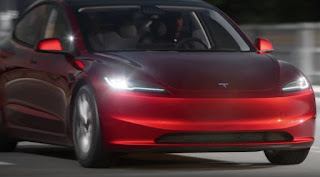Electric cars touted as clean, but their batteries come at a human cost. Tech offers hope for ethical sourcing in the future of EVs.
The fight against climate change has propelled electric vehicles (EVs) to the forefront of the transportation industry. Tesla, Volkswagen, Ford, and many others are vying to build cleaner cars with longer ranges. But a shadow hangs over this supposed clean revolution – human rights violations in the mining of essential minerals for EV batteries. Here, technology offers a glimmer of hope for a more ethical future.
The Minerals and the Tech Gap
Electric car batteries rely on a complex mix of minerals, with some of the most critical being cobalt, lithium, nickel, manganese, and graphite. These minerals are often found concentrated in specific regions around the globe, leading to a reliance on a limited number of mines.
The Business and Human Rights Resource Centre (BHRRC) report highlights the human cost of this reliance. Their research focuses on the artisanal and small-scale mining (ASM) sector, which often operates with minimal safety regulations and oversight. This lack of regulation creates a breeding ground for exploitation.
Caroline Avan, an analyst at BHRRC, further emphasizes the ethical dilemma. While renewable energy and clean transportation are crucial, the pursuit of these goals shouldn't come at the expense of the following issues prevalent in ASM:
Child Labor: Children as young as ten are reported to be working in these mines, often exposed to hazardous materials and unsafe working conditions.
Unsafe Working Conditions: Many mines lack basic safety equipment and proper ventilation, putting workers at risk of lung disease, tunnel collapses, and other injuries.
Forced Labor: Reports of workers being forced to work against their will or in debt bondage have surfaced in some mining operations.
Environmental Degradation: Mining activities can contaminate water sources, disrupt ecosystems, and lead to deforestation.
Mitigating Risks and Ensuring Transparency
The BHRRC report reveals a concerning trend. As electric car demand rises, so does the demand for these minerals. However, technology can play a crucial role in mitigating risks and ensuring transparency in the supply chain. Here are some ways tech can help:
Blockchain Technology: Blockchain, a secure digital ledger system, can be used to track the origin of minerals from mine to factory. This can ensure transparency and help identify potential human rights violations.
Remote Monitoring and AI-powered Safety Systems: Implementing remote monitoring systems with sensors and AI can identify unsafe working conditions in real-time. This data can be used to hold mining companies accountable and improve worker safety.
Satellite Imagery and Machine Learning: Satellite imagery and machine learning algorithms can be used to detect illegal mining activities and environmental damage.
A Looming Crisis
The BHRRC report highlights the potential for a conflict of interest. Some major car manufacturers may be turning a blind eye to human rights violations in their pursuit of a competitive edge. The report names China Minmetals and Glencore as the top offenders when it comes to alleged human rights violations in mineral extraction.
However, technology can help address this conflict. Consumer-facing apps can be developed that allow users to scan a car's VIN number and access information about the ethical sourcing of the minerals used in its battery. This transparency can empower consumers to make informed choices and hold manufacturers accountable.
The electric vehicle revolution presents a golden opportunity to combat climate change. However, ignoring the human cost of mineral extraction undermines the very sustainability goals these cars aim to achieve.
What Can Be Done?
By embracing tech solutions alongside traditional methods, we can pave the way for a truly sustainable future:
Tech-enabled Transparency and Accountability: Car manufacturers should leverage blockchain and other technologies to ensure transparent sourcing practices.
Consumer Power through Tech: Empower consumers with information through mobile apps that highlight ethical sourcing practices.
Industry Standards and Regulations: Governments and international organizations can collaborate to develop stricter regulations and ethical sourcing standards for the mining industry.
Investing in the Future: Investing in research and development of alternative battery technologies that rely on less ethically complex minerals and utilize AI-powered resource exploration can offer long-term solutions.
By acknowledging the human rights issues within the electric car supply chain and taking concrete steps towards ethical sourcing with the help of technology, we can ensure that the electric car revolution truly lives up to its promise of a cleaner and more sustainable future.
